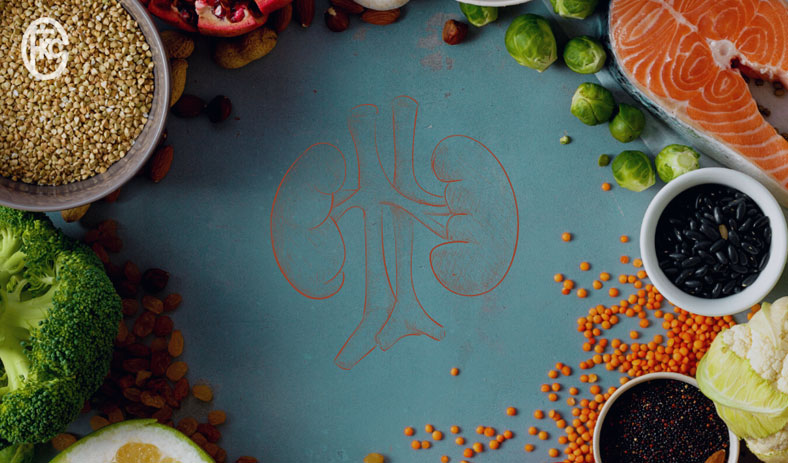
1. Choose low-protein, low-sodium, and low-potassium foods.
Your diet should be tailored to your individual needs and should include foods low in protein, sodium, and potassium. Protein needs can be met through lean meats, poultry, fish, eggs, and plant-based proteins. Low-sodium foods include fresh fruits and vegetables, whole grains, and unsalted snacks like nuts and seeds. Low-potassium foods include non-starchy vegetables, low-fat dairy products, and low-sodium canned soups and broths.
2. Eat smaller meals more frequently.
Eating smaller meals more frequently throughout the day can help you feel full longer, prevent hunger, and avoid overeating. This can also help to limit the amount of sodium and potassium in each meal.
3. Drink plenty of fluids.
Staying hydrated is important for people with chronic kidney disease. Water should be your main source of fluids. Other low-potassium fluids include tea, coffee, and low-sodium broth.
4. Monitor your potassium and sodium intake.
Your doctor may recommend a certain amount of sodium and potassium each day. Keeping track of your intake can help you stay within the recommended range.
5. Limit processed and high-sodium foods.
Processed foods often contain high levels of sodium and potassium. Avoid or limit these types of foods and instead opt for fresh fruits and vegetables, low-fat dairy products, and lean meats.
6. Avoid phosphorus-rich foods.
Phosphorus-rich foods include dairy products, nuts, and whole grains. Too much phosphorus in your diet can cause complications for people with chronic kidney disease.
7. Eat foods high in fiber.
Fiber helps to slow the absorption of sugar into the bloodstream, which can help to control blood sugar levels. High-fiber foods include fruits, vegetables, beans, and whole grains.
8. Avoid foods high in sugar.
High-sugar foods can cause spikes in your blood sugar levels and can increase your risk of developing diabetes. Examples of high-sugar foods include candy, cakes, and sweetened beverages.
9. Consult with a registered dietitian.
A registered dietitian can provide personalized dietary advice to help you meet your nutritional needs. They can also help you create a meal plan tailored to your specific needs.
Conclusion
Following a kidney-friendly diet is important for people with chronic kidney disease. A diet low in protein, sodium, and potassium, with smaller meals more frequently and plenty of fluids, can help maintain your health and prevent complications. It is also important to limit processed and high-sodium foods, phosphorus-rich foods, foods high in sugar, and to consult with a registered dietitian to ensure you are getting the right balance of nutrients.